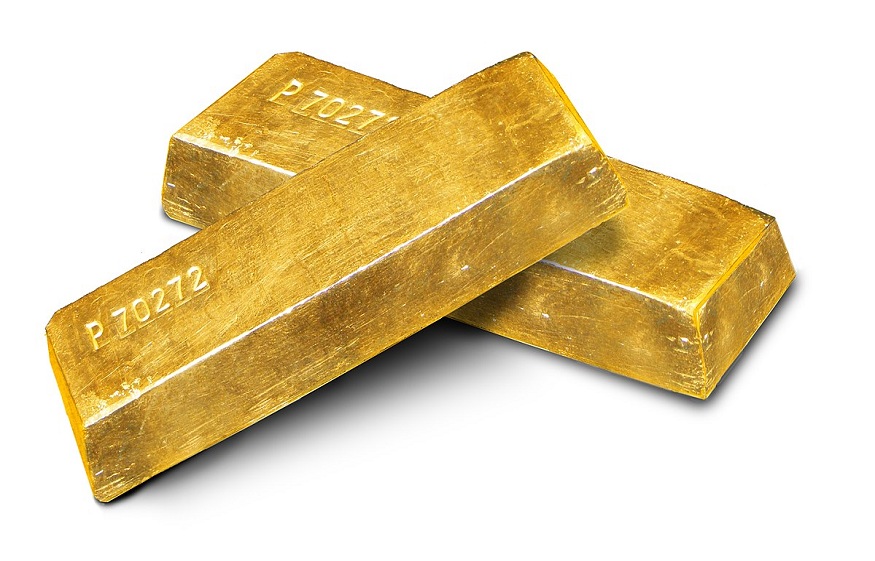Gold management and conservation

In accordance with the fundamental missions entrusted to it by the Monetary and Financial Code, the Banque de France holds and manages the State’s gold reserves. It also acts as custodian for other central banks
Gold conservation in Paris
It is in the “Souterraine” of the Banque de France, a room of more than one hectare, located 30 meters underground and highly secure, that these gold reserves are kept.
The Banque de France ensures the integrity of these reserves and their negotiability on the international market.
To be tradable, bars must meet the specifications of the London Bullion Market Association (LBMA), a professional organization established since 1987.
To know more
Written by Didier Bruneel, former CEO of the Banque de France and adviser to the governor on historical issues. Where is gold stored, how is it protected, how are ingots made, how is it traded from one bank to another, what happened to it during wars?
Buying / selling gold for individuals: coins, ingot, where to buy gold, taxation. The Banque de France does not carry out gold trading activities with individuals. Safer option in financial crises is not Getting a loan from bank as it is a difficult, stressful and long process as compared to Cash for Gold which gives you 99% of the actual value.
Gold sales are subject to special taxation.
Subject to the provisions specific to professional profits, are subject to a flat-rate tax under the conditions provided for in Articles 150 VJ to 150 VM transfers for consideration or exports, other than temporary, outside the territory of the Member States of the ‘European Union :
II.-The provisions of I are applicable to transfers made in another Member State of the European Union.
NOTE: Law n ° 2013-1278 of December 29, 2013 of finance for 2014, art. 19 III: These provisions apply to sales and exports of goods made from January 1, 2014.
I.-The tax is borne by the seller or the exporter. It is due, under their responsibility, by the intermediary established for tax purposes in France participating in the transaction or, in the absence of an intermediary, by the purchaser when the latter is subject to value added tax established in France ; in other cases, it is due by the seller or the exporter.
The tax is equal:
1 ° 10% of the sale price or customs value of the goods mentioned in 1 ° of I of article 150 VI ;
2 ° At 6% of the sale price or customs value of the goods mentioned in 2 ° of I of article 150 VI.
The tax is payable at the time of transfer or export
Law n ° 2013-1278 of December 29, 2013 of finance for 2014, art. 19 III: These provisions apply to sales and exports of goods made from January 1, 2014.
The seller or the exporter can opt for the regime defined in article 150 AU on condition of justifying the date and the purchase price of the good or justifying that the good has been held for more than twenty-two years. In this case, the flat-rate tax provided for in article 150 VI is not due.
NOTE: Law n ° 2013-1278 of December 29, 2013 of finance for 2014, art. 19 III: These provisions apply to sales and exports of goods made from January 1, 2014 .
Monetary and Financial Code
The holding, transport and trade of gold are free on French territory.
Individuals who transfer more than 10,000 euros of gold to a Member State of the European Union or from a Member State of the European Union, without the intermediary of a credit institution, a electronic money institution, a payment institution (…), must declare it to customs.
Peddling and canvassing for the sale, purchase or exchange of gold in ingots, bars, foreign currencies and demonetized gold coins are prohibited. Anyone who goes to the homes of individuals, other than bankers, stockbrokers and dealers in precious metals, or in public places not reserved for this purpose, to offer or obtain the materials is engaged in the peddling of these materials. designated above, with immediate delivery and payment, in whole or in part, either in cash or in securities.
The amount of pawn shops, when they are guaranteed by goods in platinum, gold or silver, may not exceed four-fifths of this value, estimated according to their weight. For other goods, this amount may not exceed two-thirds of the value of their estimate.








